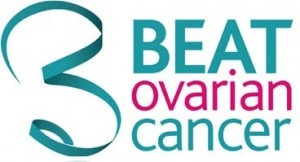What Causes Ovarian Cancer – Part 2
May 6, 2015 | Author: Susan Silberstein PhD
In my first article in this series, I discussed various risk factors for ovarian cancer – both those that are commonly recognized and those that are not so well known — like the much-neglected factor of hormone replacement therapy. Now I want to talk about another risk factor you may not know about.
Talcum Powder and Ovarian Cancer Risk
Talcum powder is made from talc, a mineral composed mainly of the elements magnesium, silicon, and oxygen. It is widely used in cosmetic products such as baby powder and adult body and facial powders, as well as in a number of other consumer products.
When talking about whether or not talcum powder is linked to cancer, it is important first to distinguish between talc that contains asbestos and talc that is asbestos-free. The former is known to cause cancer in and around the lungs (mesothelioma) if inhaled and is not used in modern consumer products. The evidence about asbestos-free talc, which is still widely used, is less clear.
So does talcum powder cause ovarian cancer? Actually, talcum powder is a proven carcinogen. The use of talcum powder from baby powder and other personal care products has been linked in several studies to ovarian cancer. Researchers believe that the problem caused by talc in feminine hygiene products is due to inflammation caused by talc particles moving through the female reproductive system. If the powder (applied to the genital area or on sanitary napkins, diaphragms, or condoms) travels through the vagina, uterus, and fallopian tubes to the ovaries, ovarian cancer may be the outcome.
In his article ”Talcum Powder Linked to Ovarian Cancer” (October 14, 2008 Mercola.com), Dr. Joseph Mercola states: “Women have been warned to immediately stop using talcum powder around their genitals, as 2008 research suggests particles may travel to the ovaries and trigger a process of inflammation that allows cancer cells to flourish.” Those findings indicated that women who use talc once a week are 40 percent more likely to get ovarian cancer.
Research led by Dr. Margaret A. Gates and funded by the National Cancer Institute and the National Institutes of Health revealed a 36 to 41 percent increase in the risk of ovarian cancer in women who use talcum-based products for personal hygiene. Gates’ group studied more than 3,000 women and found that using talc merely once a week raised the risk of ovarian cancer by 36 percent. The danger rose to 41 percent for those applying powder every day.
Aside from this study, the American Cancer Society reported on the following earlier research:
- A study published in 1997 found that women who applied talcum powder to their external genital area or who used genital deodorant sprays (which often contain talc) had a 50 percent to 90 percent higher risk of ovarian cancer.
- A study from 2000 found that talc use increased the risk of one type of ovarian cancer, invasive serous, by 40 percent.
- A meta-analysis done in 2003 found a 33 percent increase in ovarian cancer risk among talc users.
How Else Can You Be Exposed to Talc?
Besides its use in baby and body powders, talc is widely used in cosmetics. The Environmental Working Group’s Skin Deep database reports that talc is found in thousands of toiletries ranging from cosmetics (foundation, eyeshadow, blush, lipstick, bronzers, concealer and facial powders) to antiperspirants and deodorants.
You may also wish to avoid dietary intake of talc, which is added to many foods as an anti-caking agent. Because the U.S. Food and Drug Administration has granted it GRAS (generally recognized as safe) status, talc does not need to be approved by the FDA prior to use in food. This chalk-like ingredient is often added to breakfast cereals, processed cheese products, sweeteners, vinegar, mustard, sauces, seasonings, baked goods, candy, sorbets, puddings, yogurt, energy drinks, processed rice products, and more. Another reason to avoid processed foods!
Despite the disturbing data on ovarian cancer, talcum powder has remained unregulated while millions of people are unsuspectingly exposed to the toxic substance. Hopefully, our readers will help spread the word. In my next article in this series, I will write about a third little-known factor that can play a big role in ovarian cancer.
Join the conversation. Create a topic in our forum.
References:
[1] http://www.cancer.org/cancer/cancercauses/othercarcinogens/athome/talcum-powder-and-cancer
[2] http://articles.mercola.com/sites/articles/archive/2008/10/14/talcum-powder-linked-to-ovarian-cancer.aspx#!
[3] http://www.ewg.org/skindeep/?ingred06=706427\
